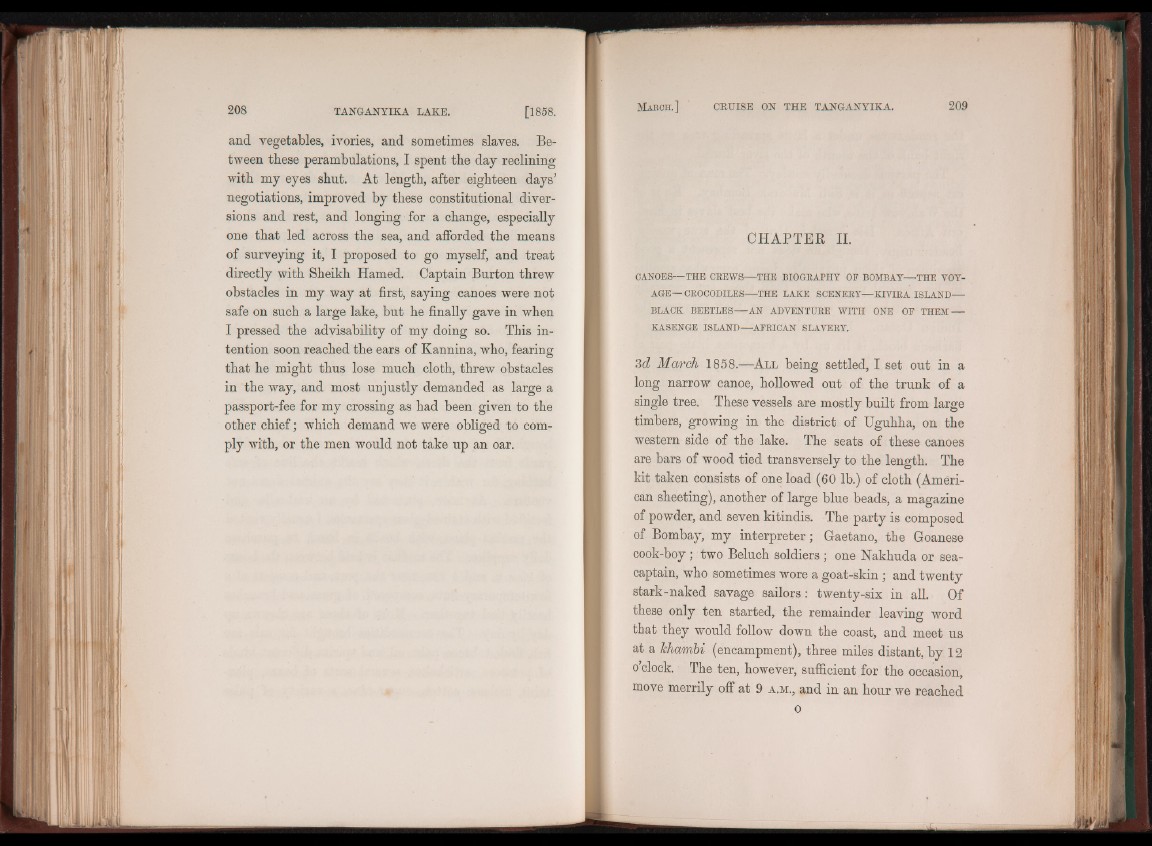
and vegetables, ivories, and sometimes slaves. Between
these perambulations, I spent the day reclining
with my eyes shut. At length, after eighteen days’
negotiations, improved by these constitutional diversions
and rest, and longing for a change, especially
one that led across the sea, and afforded the means
of surveying it, I proposed to go myself, and treat
directly with Sheikh Hamed. Captain Burton threw
obstacles in my way at first, saying canoes were not
safe on such a large lake, but he finally gave in when
I pressed the advisability of my doing so. This intention
soon reached the ears of Kannina, who, fearing
that he might thus lose much cloth, threw obstacles
in the way, and most unjustly demanded as large a
passport-fee for my crossing as had been given to the
other chief; which demand we were obliged to comply
with, or the men would not take up an oar.
CHAPTER II.
CANOES— THE CREWS— THE BIOGRAPHY OF BOMBAY—'THE VOYAGE—
CROCODILES— THE LAKE SCENERY— KTVIRA ISLAND—
BLACK BEETLES— AN ADVENTURE WITH ONE OF THEM —
KASENGE ISLAND— AFRICAN SLAVERY.
3d March 1858.—A ll being settled, I set out in a
long narrow canoe, hollowed out of the trunk of a
siDgle tree. These vessels are mostly built from large
timbers, growing in the district of Uguhha, on the
western side of the lake. The seats of these canoes
are bars of wood tied transversely to the length. The
kit taken consists of one load (60 lb.) of cloth (American
sheeting), another of large blue beads, a magazine
of powder, and seven kitindis. The party is composed
of Bombay, my interpreter; Gaetano, the Goanese
cook-boy; two Beluch soldiers J one Nakhuda or sea-
captain, who sometimes wore a goat-skin; and twenty
stark-naked savage sailors : twenty-six in all. Of
these only ten started, the remainder leaving word
that they would follow down the coast, and meet us
at a Jchambi (encampment), three miles distant, by 12
o’clock. The ten, however, suflS.cient .for the occasion,
move merrily off at 9 a .m ., and in an hour we reached